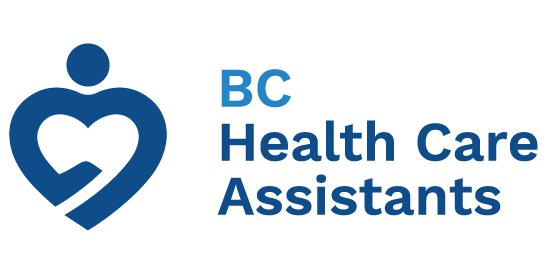Become an LPN
After training as a Health Care Assistant (HCA), if you wish to advance your studies, you can put your prior learning as an HCA towards other post-secondary programs, such as the Access to Practical Nursing (APN) Program. The APN program is a unique career laddering program for HCAs wishing to train as Licensed Practical Nurses (LPNs). This program supports a move from being an HCA transitioning to a LPN. A program like this was designed for individuals with HCA education and experience to receive their nursing credentials more quickly.
In August 2022, the Ministry of Health (MoH) announced the Access to Practical Nursing Education Bursary. This bursary is for students enrolled in a recognized Access to Practical Nursing (APN) program at a BC-based public institution to assist with tuition fees.
Become an LPN
The Access to Practical Nursing (APN) Program offers registered Health Care Assistants, a laddering pathway to become a Licensed Practical Nurse (LPN).
To be eligible for the APN program, you must hold an active status with the BC Care Aide & Community Health Worker Registry; have 600 hours of HCA experience within the last two years in a group care facility*; and meet the English Language Proficiency requirements.
For additional admission requirements, contact preferred post-secondary institution and apply.
The APN Education Bursary is for students enrolled in a recognized APN program at BC-based public institution.
Apply for the Bursary!
After completing your APN program, apply and take the exam for your LPN license with BCCNM!
Become an LPN FAQ
1. What is the Access to Practical Nursing (APN) Program?
The APN program is a unique career laddering program for Health Care Assistants (HCAs) wishing to train as Licensed Practical Nurses (LPNs). The APN program allows students to apply training and experience garnered as an HCA to accelerate their training as an LPN.
2. Which post-secondary institutions offer the Access to Practical Nursing Program?
The APN program is offered at public and private post-secondary institutions.
The following post-secondary institutions qualify for the Access to Practical Nursing Education Bursary:
3. What are the requirements to be eligible for the Access to Practical Nursing Program?
To be eligible for the APN program, you must hold an active status with the BC Care Aide & Community Health Worker Registry; have completed 600 hours of HCA experience within the last two years in a group care facility; and meet the English Language Proficiency requirements.
Please contact your preferred post-secondary institution for more information on their admission requirements.
4. How long does it take to complete the Access to Practical Nursing Program?
The program can take between 12 to 18 months to complete. Please contact your preferred post-secondary institution for more information.
5. Do I need to be a Registered Health Care Assistant to be eligible for the Access to Practical Nursing Program?
Yes, you are required to be registered with the BC Care Aide & Community Health Worker Registry to be eligible for the program.
6. What is the cost of tuition fees of the Access to Practical Nursing Program?
Please contact your preferred post-secondary institution for more information on tuition fees.
7. Is there financial support to assist with the cost of tuition fees?
On August 23, 2022, the Ministry of Health (MoH) announced the Access to Practical Nursing Education Bursary. This bursary is for students enrolled in an Access to Practical Nursing (APN) program at a qualifying BC-based public institution. Incentivizing HCAs to enroll in this program will help to retain HCAs in BC’s public health system and to expedite the number of LPNs available to support more immediate LPN staffing needs.
8. Once I complete the Access to Practical Nursing Program, how do I register to practice as a Licensed Practical Nurse in BC?
Graduates of the APN program can apply to take the exam for the LPN license with the British Columbia College of Nurses and Midwives.
9. What types of settings could I work in as a Licensed Practical Nurse?
Licensed Practical Nurses can work in a variety of settings included, but not limited to the following:
- Hospitals
- Community group homes
- Residential and long term care facilities
- Schools
- Public and private medical clinics
- Home care agencies
- Rehabilitation Centres
10. What are the job prospects for Licensed Practical Nurses in British Columbia?
With the nurse-to-patient ratio increasing announced by the BC Government, the need for Licenses Practical Nurses is growing.
For more information on job prospects for Licensed Practical Nurses in BC, please visit : https://www.workbc.ca/career-profiles/licensed-practical-nurses
